Episode 02 of The Last American President
In Episode 1 I proposed that Donald Trump will win the 2024 Presidential election and that his rise to power can be best understood as an example of German sociologist Max Weber’s theory of “charismatic leadership."

Tom Diaz, "Alternate Facts"
A DUCK FOR ALL CONTEXTS
Donald Trump is not Vladimir Lenin, Benito Mussolini, or Adolf Hitler. It is unhelpful, even damaging, to try to stuff Trump into an Adolf Hitler costume without refined analysis,
Trump is like the other three, a charismatic leader. He swims, quacks, and rather obviously tries to look like them with pouting scowl, jutting chin, and pompously folded arms. His goal is the same as theirs was—dictatorial powers.
But it is critical to understand that the specific agenda with which he continues to enchant his followers is a different song from those sung by each of those other ducks, just as each was different from the other. One might say that the content of each duck’s quack depends upon the context—the ponds in which each swim.
Trump is not calling for the overthrow of capitalism, the murder of Jews, or the recapture of neighboring lands. At least, not yet. He does have analogous themes, which I will discuss in coming episodes. “Sufficient unto the day is the evil thereof.” [1]
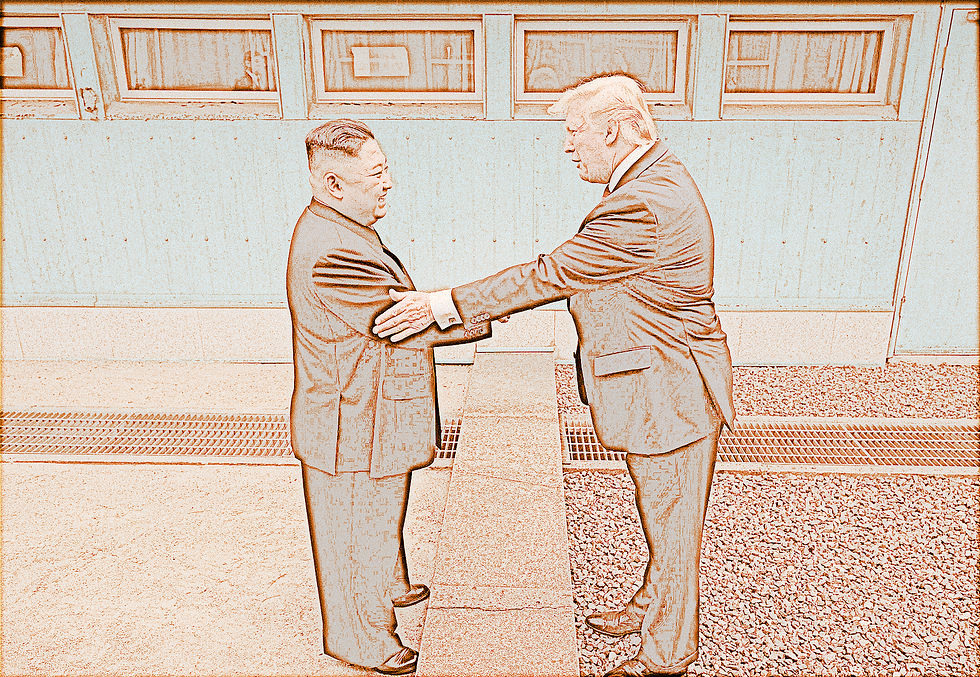
White House Photo, edited by Second Front
MAKING CHEESE IS DIFFERENT FROM CHEESE ITSELF
To understand Trump, it is crucial to distinguish between process and result. What followed after Hitler won dictatorial power, the Holocaust, is different from how he got power. Hitler won power through the regular German democratic process. What followed was a crime that could only have been accomplished after he legally obtained power to establish the totalitarian Nazi state. [2]

Donald Trump will win office again through our democratic process. This time, however, he will inject that process with a fatal virus. Within hours after his inauguration, he will use to lethal effect a tool popular and commonplace among modern Presidents. He will issue a series of executive orders that will gut the democratic framework that brought him to power. [3]
THE MEAT LOAF OF CHARISMATIC POWER—DISTRESSED FOLLOWERS
Enthusiastic, willing followers are the key to the success of any charismatic leader. Why would anyone follow Donald Trump?

Licensed image from iStockphoto.com
Princeton scholar Robert Tucker explained the underlying dynamic.
“He [Weber] tells us that charismatic leaders have been the natural leaders ‘in time of psychic, physical, economic, ethical, religious, political distress,’ and, elsewhere, that charisma inspires its followers with ‘a devotion born of distress and enthusiasm.’ In short, the key to the charismatic response of the followers to the leader lies in the distress that the followers experience.” [4]
These distressed souls form the needy core, the meat loaf, the base of a charismatic leader like Trump. “They do not follow him out of fear or monetary inducement, but out of love, passionate devotion, enthusiasm.” [5]
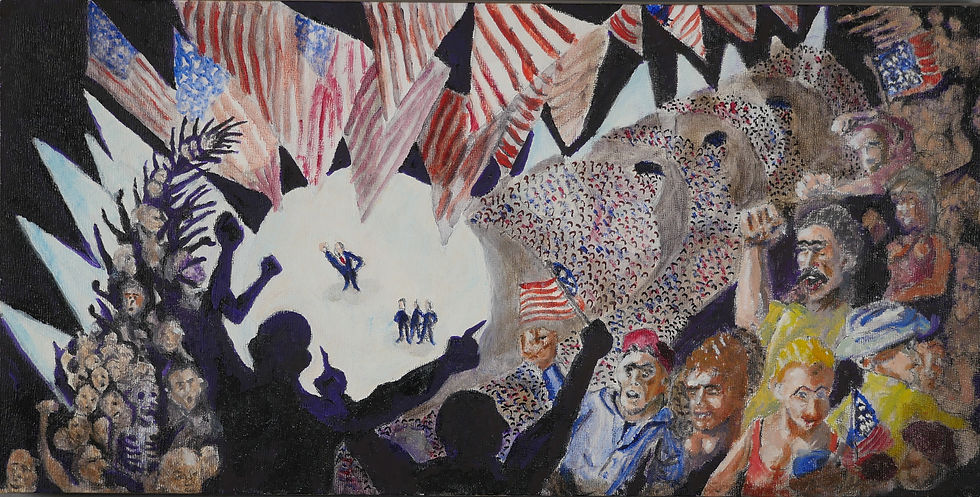
Tom Diaz, "The Howling"
I propose that the major sources of distress driving the Trump base are:
Economic despair
Societal disorder.
Uncontrolled immigration.
Erosion of religious and/or ethical values.
Under-girding all of these is the perception that this pain is the result of change rammed down the throat of “ordinary Americans” by self-serving politicians and corporate interests, working together.
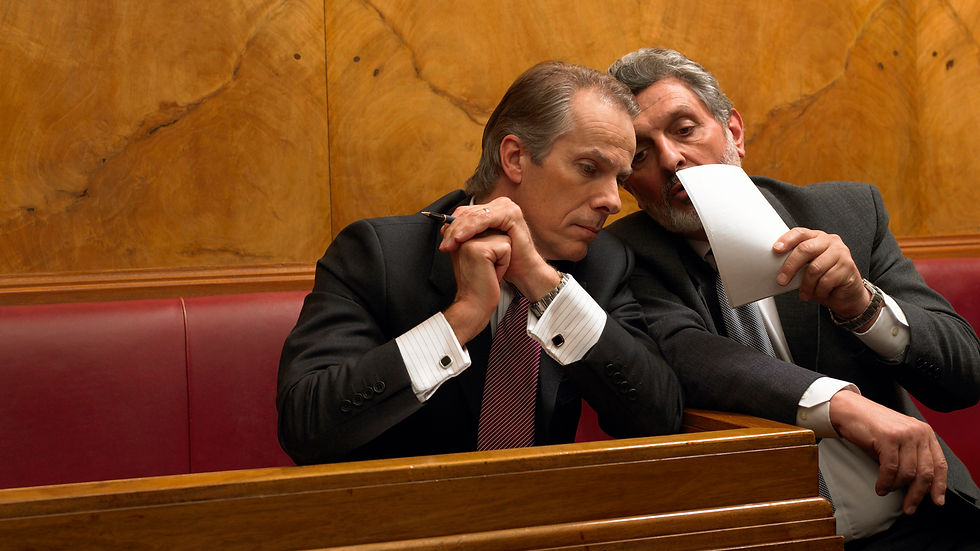
Licensed image from iStockphoto.com
One need not agree that the distress is objectively well-founded to accept the dynamic. What matters is the perceptions of the aggrieved. The economy might be excellent. But that matters not a whit if the perception among distressed souls is that they are suffering.
THE SPECIAL SAUCE—LIKE MINDS AND OPPORTUNISTS
There are others who join a charismatic leader’s flock not because they need to be saved, but rather because they agree with the values for which the leader stands. Hitler propagandist and ruthless Nazi Joseph Goebbels, for example, was an early admirer of Hitler. “Who is this man? Half plebian, half God? Actually Christ, or only John?” he wrote in his diary after reading the first volume of Hitler’s turgid Mein Kampf. He was a skeptic about whether Hitler could succeed until he met the man, after which he wrote “Adolf Hitler, I love you because you are both great and simple at the same time. What one calls a genius.” [6]
I argue that many, perhaps most, of those politicians—like Lindsey Graham—who first criticized Trump and later converted to his cause did so because all along they secretly held beliefs similar to Trump’s, but only later realized that he had made it possible for them to publicly express those beliefs.
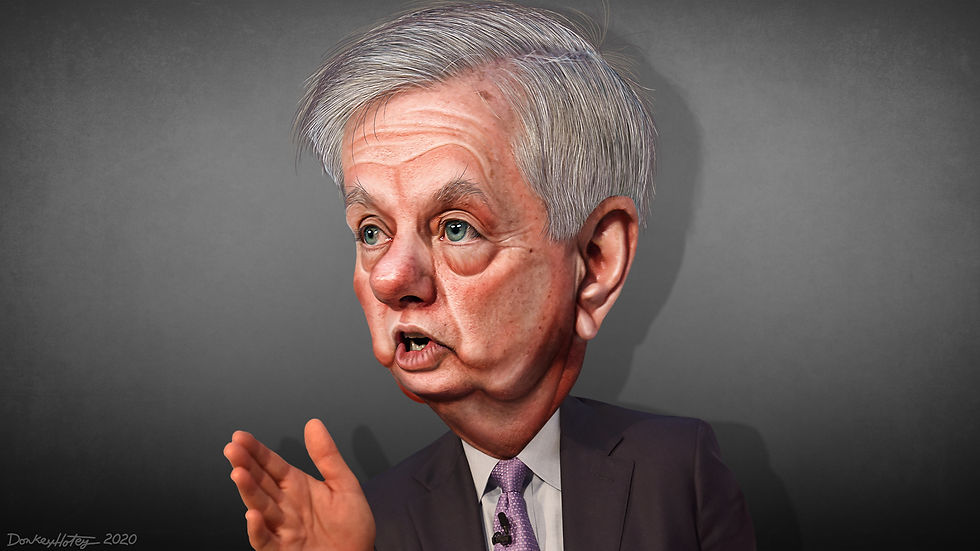
U.S. Institute of Peace
Still others see crass opportunity for personal advancement. Ian Kershaw put it this way:
“… the 'vision' embodied by Hitler … spurred initiatives within the state bureaucracy, industry and the armed forces, and among the professionals such as teachers, doctors or lawyers where the motif of 'national redemption' could offer an open door to the push for realization of long-cherished ambitions felt to have been held back or damaged by the Weimar 'system'.” [7]
Stand down and stay tuned. More to come.
“Be there, will be wild!” [8]
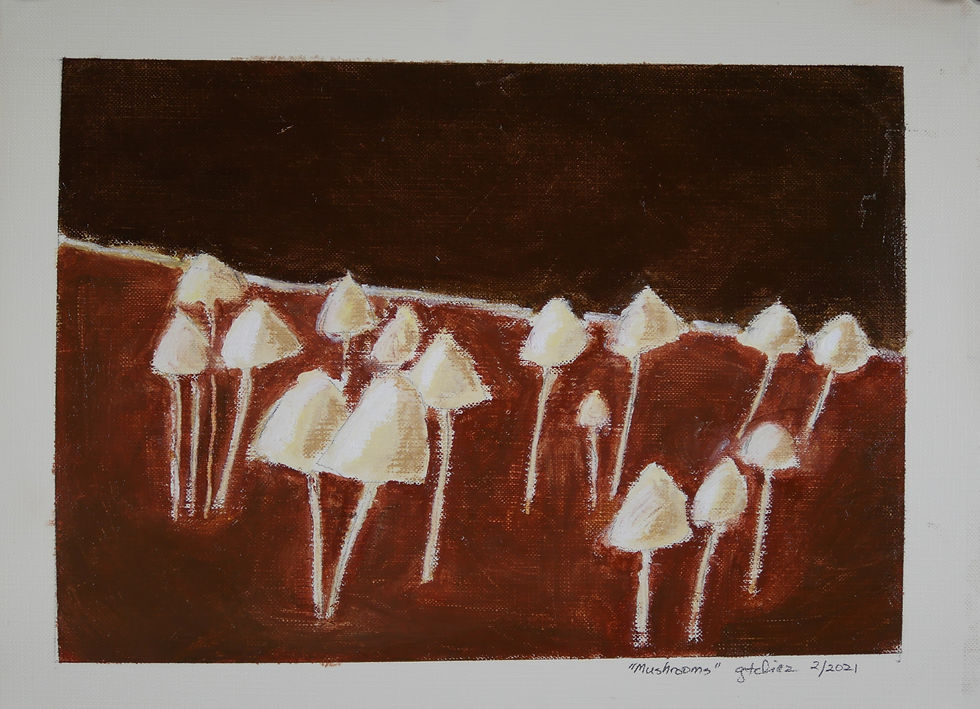
[1] Matthew 6:34.
[2] For a discussion of this fine point, see Richard Bessel, “The Nazi Capture of Power,” Journal of Contemporary History, Apr., 2004, Vol. 39, No. 2, “Understanding Nazi Germany,” pp. 169-188. Sage Publications, Ltd. https://www.jstor.org/stable/3180720.
[3] Presidents have issued 1,005 executive orders since 1994. As of January 14, 2024, the count by President was Bill Clinton, 87. George W. Bush, 291. Barack Obama, 277. Donald Trump, 220. Joe Biden, 130. National Archives, Federal Register, “Executive Orders.” https://www.federalregister.gov/presidential-documents/executive-orders.
[4] Robert C. Tucker. “The Theory of Charismatic Leadership.” Daedalus, Summer, 1968, Vol. 97, No. 3, “Philosophers and Kings: Studies in Leadership” (Summer, 1968), pp. 731-756, 742. (Emphasis added.)
[5] Tucker, 735.
[6] Ian Kershaw. Hitler, A Biography. London: W.W. Norton & Company, 2008, 170, 171.
[7] Ian Kershaw. "'Working Towards the Fuhrer.' Reflections on the Nature of the Hitler Dictatorship." Contemporary European History, 2, 2 (1993), pp. 103—118, 114. Published online by Cambridge University Press. https://doi.org/10.1017/S0960777300000382.
[8] Donald Trump tweet, December 20, 2020.
Comentarios